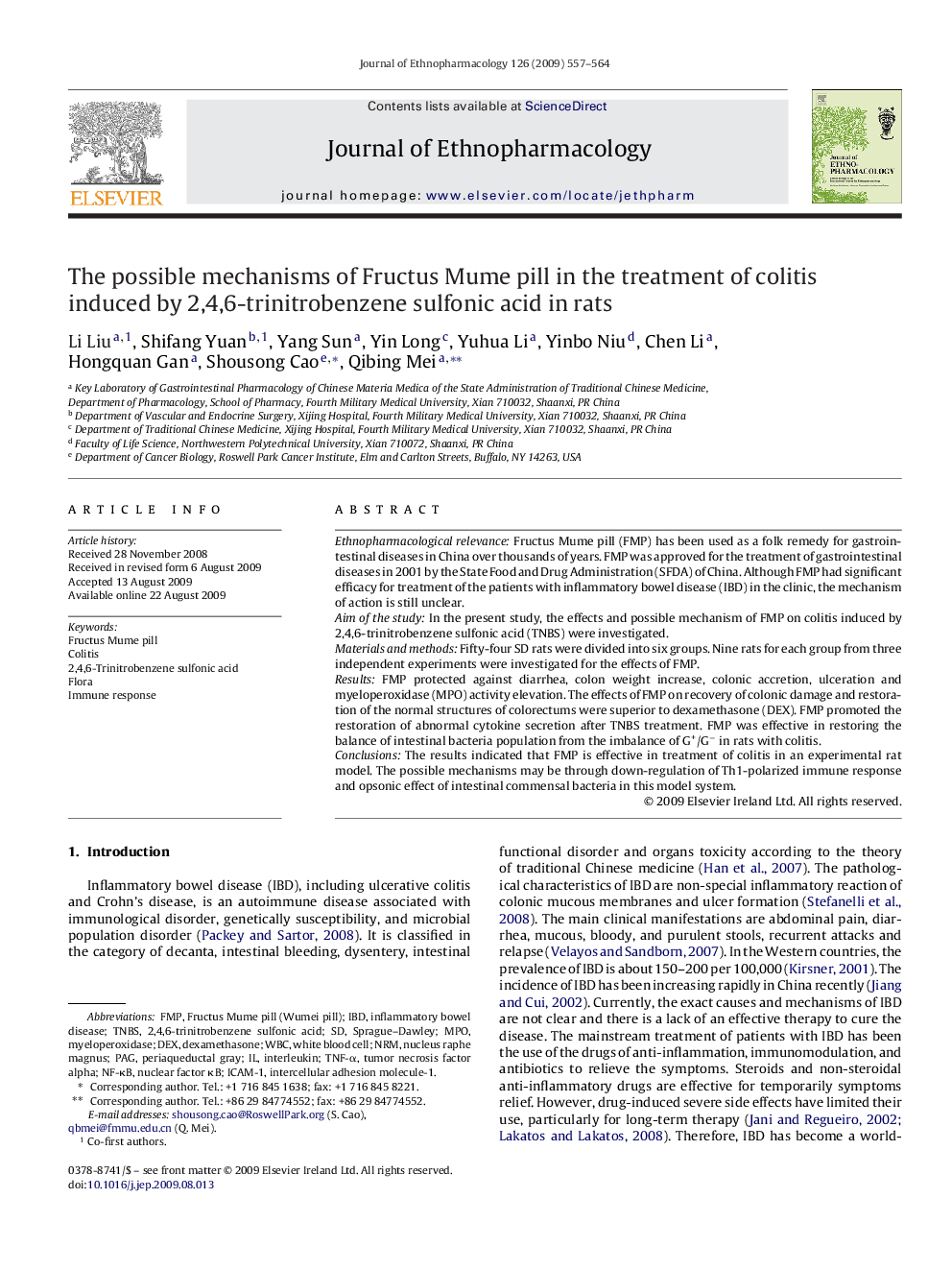| Article ID | Journal | Published Year | Pages | File Type |
|---|---|---|---|---|
| 2546480 | Journal of Ethnopharmacology | 2009 | 8 Pages |
Ethnopharmacological relevanceFructus Mume pill (FMP) has been used as a folk remedy for gastrointestinal diseases in China over thousands of years. FMP was approved for the treatment of gastrointestinal diseases in 2001 by the State Food and Drug Administration (SFDA) of China. Although FMP had significant efficacy for treatment of the patients with inflammatory bowel disease (IBD) in the clinic, the mechanism of action is still unclear.Aim of the studyIn the present study, the effects and possible mechanism of FMP on colitis induced by 2,4,6-trinitrobenzene sulfonic acid (TNBS) were investigated.Materials and methodsFifty-four SD rats were divided into six groups. Nine rats for each group from three independent experiments were investigated for the effects of FMP.ResultsFMP protected against diarrhea, colon weight increase, colonic accretion, ulceration and myeloperoxidase (MPO) activity elevation. The effects of FMP on recovery of colonic damage and restoration of the normal structures of colorectums were superior to dexamethasone (DEX). FMP promoted the restoration of abnormal cytokine secretion after TNBS treatment. FMP was effective in restoring the balance of intestinal bacteria population from the imbalance of G+/G− in rats with colitis.ConclusionsThe results indicated that FMP is effective in treatment of colitis in an experimental rat model. The possible mechanisms may be through down-regulation of Th1-polarized immune response and opsonic effect of intestinal commensal bacteria in this model system.
